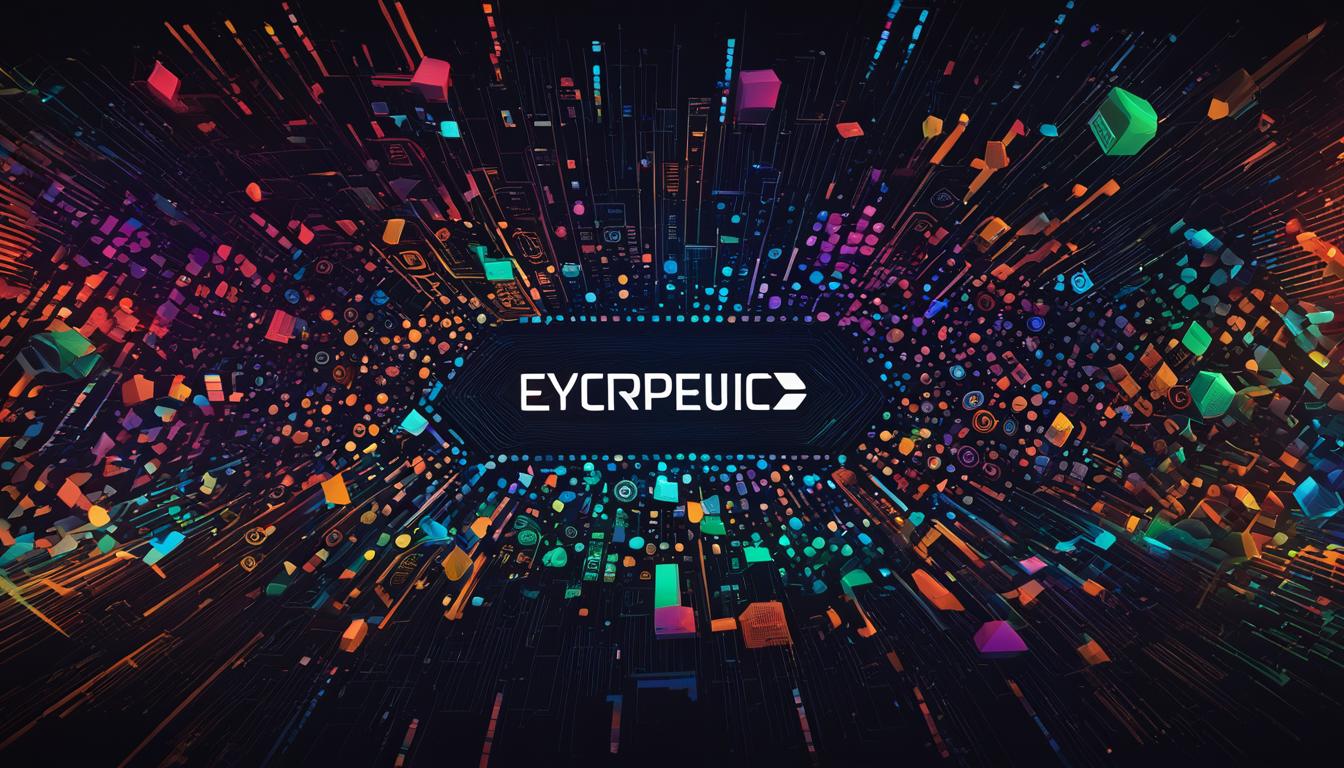A decentralized exchange (DEX) is a revolutionary solution in the world of cryptocurrency trading. Unlike traditional exchanges that rely on intermediaries to facilitate transactions, DEXs enable users to trade cryptocurrencies directly with one another. With the rise of blockchain technology, DEXs have emerged as the go-to platforms for secure and transparent trading.
When it comes to cryptocurrency exchanges, DEXs are considered to be the best in the business. Their decentralized nature ensures a high level of security and eliminates the risk of central authority manipulation. By eliminating intermediaries, DEXs provide users with direct control over their funds and offer a greater level of financial autonomy.
Cryptocurrency trading platforms come in various forms, but DEXs stand out as the top choice for crypto enthusiasts. These platforms leverage blockchain-based smart contracts to facilitate seamless and efficient trading. DEXs provide transparency by publishing all transactions on the blockchain, allowing users to verify and audit the trades.
Key Takeaways
- DEXs enable direct peer-to-peer trading of cryptocurrencies without intermediaries.
- They offer increased security and transparency compared to traditional exchanges.
- DEXs provide users with full control over their funds and eliminate the need for central authority.
- These platforms use blockchain-based smart contracts to facilitate seamless trading.
- Cryptocurrency enthusiasts consider DEXs to be the best trading platforms available.
How Does a DEX Work?
Decentralized Exchanges (DEXs) operate through the use of smart contracts and on-chain transactions, providing users with a peer-to-peer cryptocurrency trading platform. Unlike traditional crypto exchanges, DEXs allow users to maintain full custody of their funds, ensuring maximum security and control.
- Order book DEXs: These DEXs match buy and sell orders through an on-chain order book, similar to centralized exchanges. Users can place limit orders, specifying the price and quantity of the cryptocurrency they want to buy or sell. The DEX’s smart contract then matches these orders, facilitating the trade.
- Automated Market Makers (AMMs): AMMs are another type of DEX that utilize liquidity pools to determine cryptocurrency exchange rates. Users can trade their cryptocurrencies by depositing them into these pools. The ratio of tokens in the pool is used to calculate prices, ensuring liquidity and efficient trading.
While DEXs offer a decentralized trading experience, users must be mindful of network fees and trading fees associated with their transactions. Additionally, the governance of DEXs is often decentralized through decentralized autonomous organizations (DAOs), giving users a say in the decision-making process.
“Decentralized exchanges provide users with a secure platform to buy and sell cryptocurrency directly, without relying on intermediaries. Their use of smart contracts and on-chain transactions ensures transparency and eliminates the need for trust in centralized entities.”

Peer-to-Peer Cryptocurrency Trading
One of the key advantages of DEXs is the opportunity for peer-to-peer cryptocurrency trading. By removing intermediaries, users can directly interact with each other, promoting a more efficient and transparent trading environment. DEXs also contribute to the overall democratization of the financial system by enabling anyone to participate in cryptocurrency trading, regardless of their geographic location or financial background.
Advantages and Risks of DEXs
Decentralized exchanges (DEXs) offer several advantages over traditional centralized exchanges. Firstly, DEXs provide strong execution guarantees, ensuring that trades are settled efficiently and securely. This eliminates the need to rely on a central authority, making DEXs less susceptible to hacking or manipulation.
In addition, DEXs enhance transparency by leveraging blockchain technology. Every transaction is recorded on the blockchain, allowing users to verify trades and track their funds in real-time. This increased transparency builds trust and reduces the risk of fraudulent activities.
Another key advantage of DEXs is the reduced counterparty risk. With DEXs, users have full control over their funds as they trade directly from their wallets. This eliminates the need to deposit funds into centralized exchange wallets, mitigating the risk of losing assets in the event of a hack or security breach.
Furthermore, DEXs promote financial inclusion by enabling peer-to-peer cryptocurrency trading. Users from around the world can participate in the global digital economy without the need for traditional banking services. This empowers individuals who are unbanked or underbanked, expanding opportunities for economic growth and financial freedom.
Despite their numerous advantages, DEXs also come with certain risks. One of the primary concerns is smart contract vulnerabilities. Since DEXs rely on smart contracts to facilitate trades, any coding errors or exploits could result in significant financial losses. Additionally, liquidity can be an issue on some DEXs, as it depends on users providing liquidity to the pools.
Frontrunning, where arbitrageurs exploit delays in transaction execution to manipulate prices, is another risk associated with DEXs. While efforts are being made to mitigate this issue, it’s important for users to be aware of this potential risk.
Lastly, there is a possibility of centralization within DEXs, particularly in terms of governance and decision-making processes. The influence of certain individuals or entities could potentially compromise the decentralization that DEXs aim to achieve.
Overall, users should exercise caution when using DEXs, ensuring they are well-informed about the risks involved and adopting appropriate security measures. The increasing popularity of DEXs highlights the demand for secure and transparent cryptocurrency exchanges, offering users greater control over their digital assets.
FAQ
What is a decentralized exchange (DEX)?
A decentralized exchange (DEX) is a peer-to-peer marketplace where users can trade cryptocurrencies directly without the need for an intermediary. DEXs use blockchain-based smart contracts to facilitate the exchange of assets, offering transparency and reducing counterparty risk.
How do DEXs work?
DEXs operate through the use of smart contracts and on-chain transactions, allowing users to maintain full custody of their funds. There are different types of DEXs, including order book DEXs and automated market makers (AMMs), which match buy and sell orders through an on-chain order book and determine token prices based on liquidity pools, respectively.
What are the advantages of using a DEX?
DEXs offer several benefits, including strong execution guarantees, increased transparency, reduced counterparty risk, and improved financial inclusion. They provide users with control over their funds and eliminate the need for intermediaries.
What are the risks associated with DEXs?
DEXs come with risks such as smart contract vulnerabilities, liquidity issues, frontrunning by arbitrageurs, and potential centralization. It is important for users to be aware of these risks and exercise caution when using DEXs.
Source Links
- https://chain.link/education-hub/what-is-decentralized-exchange-dex
- https://www.gemini.com/cryptopedia/decentralized-exchange-crypto-dex
- https://cointelegraph.com/learn/what-are-decentralized-exchanges-and-how-do-dexs-work
- Popular Cryptocurrency Exchanges - September 18, 2024
- Cryptocurrency Exchange Security - September 17, 2024
- Cryptocurrency Exchange User Experience - September 16, 2024






